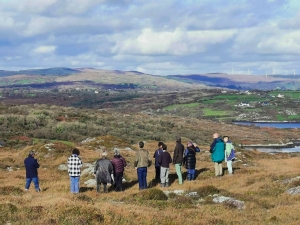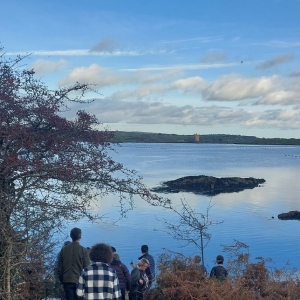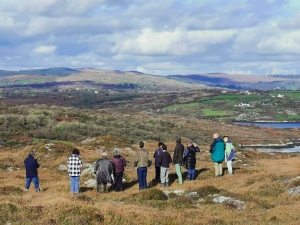The CSLP’s artist-in-residence, Veronica Mockler visited Ireland in October to continue her work as part of the Extended Environmental Record (EER). Mockler reports that she and participants “roamed the land while exploring notions of logocentrism, acoustic ecology, gatekeeping, collaboration and art-making.”
Mockler traveled to Ireland to work on the second part of her participatory research, which is one of three parts focused on examining the impact of the weakening of the Gulf Stream on the local ecosystems of West Cork. As part of the Extended Environmental Record (EER) project, Mockler collaborated with Marcus Maeder from Zurich University of the Arts ZHdK to design and facilitate a workshop for an intergenerational group of 'archipelagic' thinkers and makers who are enrolled in the island-based graduate MA in Art & Environment program at Technical University Dublin. This collaboration was made possible through EER’s growing partnership with Dr. Glenn Loughran, the coordinator and program chair of MAAE (Master of Arts in Art & Environment).


 Image credit: Ann Davoren, Glenn Loughran
Image credit: Ann Davoren, Glenn Loughran
 Image credit: Ann Davoren, Glenn Loughran
Image credit: Ann Davoren, Glenn Loughran
 Image credit: Ann Davoren, Glenn Loughran
Image credit: Ann Davoren, Glenn Loughran
 Image credit: Ann Davoren, Glenn Loughran
Image credit: Ann Davoren, Glenn Loughran
 Image credit: Ann Davoren, Glenn Loughran
Image credit: Ann Davoren, Glenn Loughran
 Image credit: Ann Davoren, Glenn Loughran
Image credit: Ann Davoren, Glenn Loughran